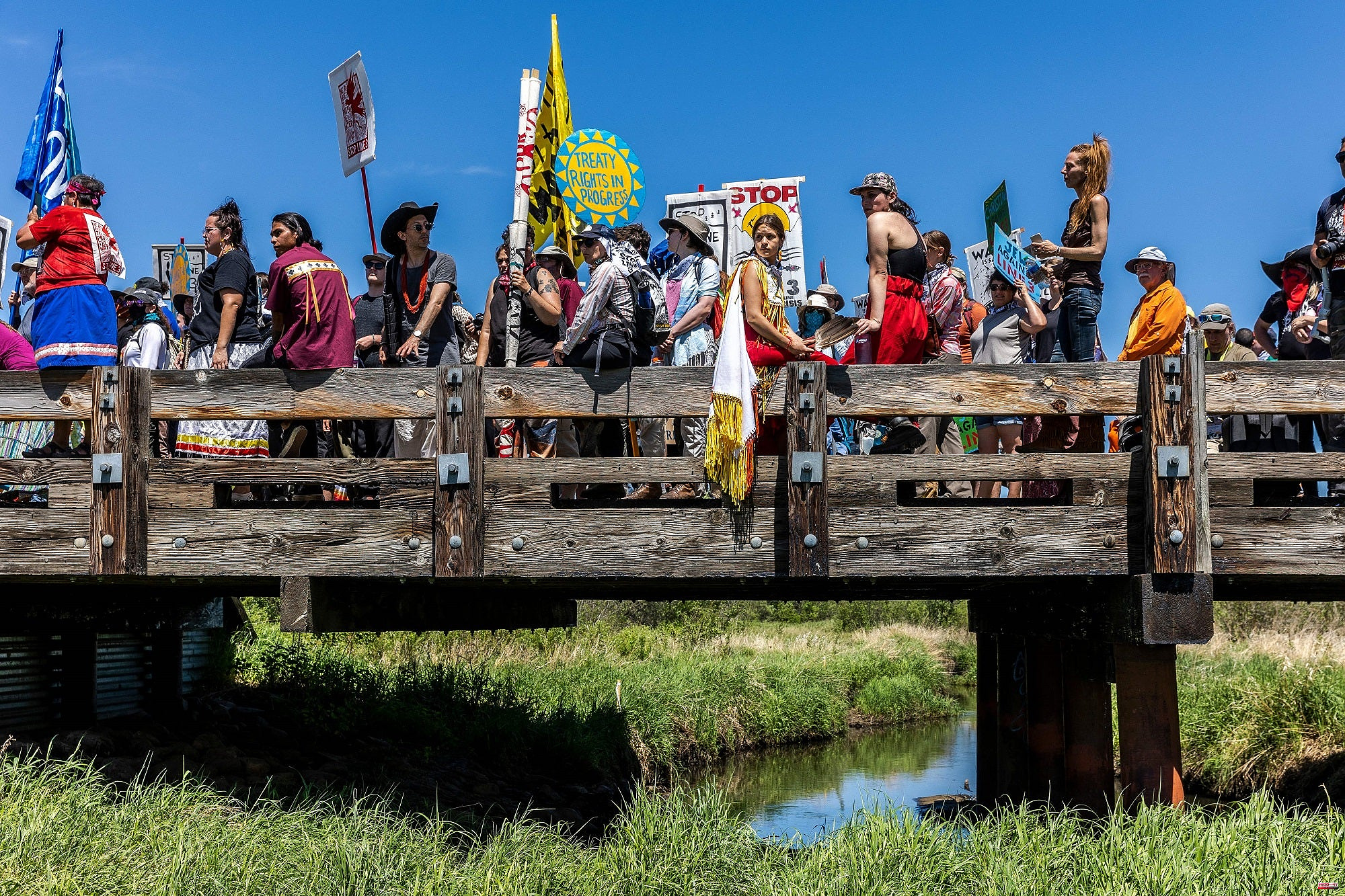The Environmental Protection Agency (EPA), is trying to restore power to states, tribes and to veto projects for energy infrastructure that could pollute streams and rivers.
For half a century, the Clean Water Act guaranteed that states and tribes could have final say on projects such as oil and gas pipelines. The Trump administration, however, weakened this authority in 2015. It stripped local governing bodies of their ability to safeguard their region's clean drinking water supply. The Trump-era rule is being reversed by the Biden administration.
Lara Fowler assistant director of Penn State Institutes of Energy and the Environment says that while one pipeline might be acceptable, multiple pipelines could be problematic. "This ruling allows states to examine the local conditions and consider them.
Fowler states that pipeline infrastructure leaves a significant footprint because of its thin, long nature. The location of a pipeline installation can impact the ecology and wildlife habitat. Construction often causes damage to wetlands or water bodies that provide drinking water for communities. Local residents could be at risk if a pipeline leaks or pollutes their freshwater supply, whether it is being constructed or already in operation.
It has been long proven that pipelines can cause environmental damage. After heavy rains, a section of the Revolution Pipeline's 40.5-mile length in Pennsylvania burst into flames. The fire caused by the landslide destroyed a nearby house, damaged power lines and burned many acres of woodland. Energy Transfer, the owner of the pipeline was indicted on nine counts of environmental crimes for the construction of the natural-gas system.
A recent example is the spillage of more than 20,000 gallons drilling mud from the 350-mile-long Mariner East Pipeline into Pennsylvania's Marsh Creek Lake. Energy Transfer also owns the natural gas pipeline. The August 2020 tragedy was only one of many problems. The project was responsible for numerous drilling mud spillages into waterways and wetlands, as well as dangerous sinkholes and drinking water contamination at 22 locations in 11 Pennsylvania counties. Energy Transfer was indicted for 48 offences related to the construction and operation of the pipeline. Construction was still possible and the pipeline was finished in February.
Pennsylvania's cases show why states and tribes should have the ability to do their own environmental impact analyses and veto harmful projects. According to Jennifer McKay (policy director at Tip of the Mitt Watershed Council), section 401 of the Clean Water Act grants states and tribes the ability to "prevent and reduce and eliminate pollution of their waterways." This is a non-profit dedicated to protecting the Great Lakes Basin's water resources. She adds that the Trump-era amendment to this section "severely limited the ability of states and authorized tribes [to] carry out their duties." "Ultimately, it threatened states' and tribes' ability to protect their water quality."
The revision limits the time that states and tribes must review a project to one calendar year. These non-federal governments are also prohibited from considering other factors than water quality in judging permits. Andrew Wheeler, then-EPA administrator, stated that these restrictions were meant to "curb abuses under the Clean Water Act that have held the nation's energy infrastructure projects hostage and to set forth clear guidelines that finally give them a path forward." He first announced the ruling in June 2020.
Although Section 401 doesn't explicitly target fossil fuel projects some states have used their power to stop or delay these developments. 2017 Gov. Jay Inslet, Washington used the Clean Water Act power to refuse a permit for a Columbia River coal export terminal. He cited the potential for significant spillages and adverse effects on air quality. The current governor of New York used the same power to deny a permit for a coal export terminal on the Columbia River in 2020. Andrew Cuomo, New York's governor, used the same authority in rejecting a natural gas pipeline project. He cited the company's failure to show that it could meet state water quality standards.
McKay states that the Trump administration had an order to encourage economic development and pipeline development. They felt that this rule, which had not been modified in 50 years, was being followed.
Pipeline projects are not only a concern for the polluting waterways. Installation of such infrastructure may cause serious damage to ecosystems nearby, displacing endangered or threatened species and damaging crucial wetland habitat. Pipeline projects can also negatively impact farmland health, tribal resources, and wild rice. Numerous studies have shown that pipelines can lead to soil degradation and lower crop yields in areas with poor soil health.
States and tribes will be able to again analyze the environmental impact of energy infrastructure projects once the EPA's rule is finalized. Fowler said she was "heartened" that the states would be able to reclaim that power. States often have higher environmental standards than the federal government. Fowler also noted the importance of tribes having this veto power because they are sovereign governments under federal law.
The issue of the pipeline is one that combines many interests, from national to international, private to public, state to federal, public to public, public health to wildlife conservation and state to government. Fowler states that no state is immune to energy demands. It is difficult to decide where the line should be drawn, but it is something we must think creatively about. How can you balance all the values and concerns that go into something like this? How can you promote energy production and development while minimising impacts?
Before the rule can be finalized, it will still need to be subject to a 60-day public comment period and review. McKay states that the goal is to have it completed by spring 2023. The people who live closest to pipelines or other disturbances will have the ability to choose again.












